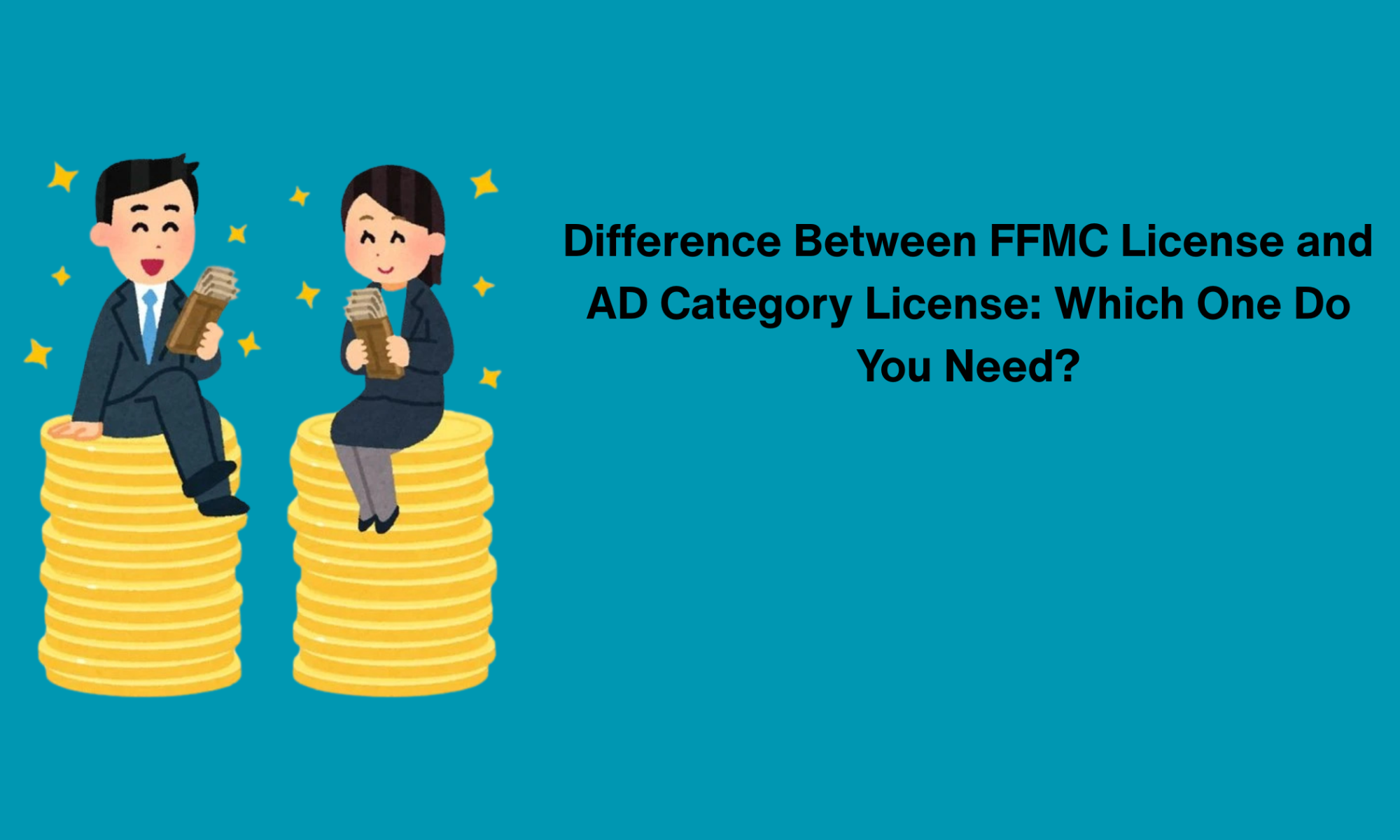If you’re planning to venture into the foreign exchange business in India, understanding the regulatory landscape is critical. Two prominent licenses govern this space—Full Fledged Money Changer (FFMC) License and Authorized Dealer (AD) Category License.
Both are issued by the Reserve Bank of India (RBI), but their scope, eligibility, and operations differ significantly. In this blog, we’ll break down the difference between FFMC License and AD Category License, so you can decide which is the right fit for your business.
What is a Full Fledged Money Changer (FFMC) License?
A Full Fledged Money Changer license allows non-bank entities to engage in specific foreign exchange activities. FFMCs are permitted to:
- Buy foreign exchange from travelers
- Sell foreign exchange for travel-related needs (like overseas trips, education, medical treatment)
- Issue forex prepaid cards and travelers’ cheques (in collaboration with banks)
FFMCs play a crucial role in easing access to foreign currency in areas where banks or ADs may not have strong presence.
Key Features of FFMC License in India:
- Issued to companies registered under the Companies Act
- Minimum net owned fund requirement: ₹25 lakhs (for single-branch) and ₹50 lakhs (for multiple branches)
- Valid for 5 years, subject to renewal
- Operations limited to foreign exchange conversion—no remittances or trade-related services
If you’re looking to become a currency exchange service provider without the complexity of banking operations, the FFMC license in India is ideal.
Many businesses now apply for FFMCs license online with the help of legal and compliance professionals.
What is an AD Category License?
Authorized Dealer (AD) Category Licenses are given to entities (primarily banks and financial institutions) that can undertake a broader range of foreign exchange transactions. These include:
- Inward and outward remittances
- Trade finance (imports/exports)
- Foreign currency accounts
- Investment advisory for international investments
AD Category licenses are classified into:
- AD Category I: Commercial banks (broadest range of services)
- AD Category II: Upgraded FFMCs or other non-banking entities with more limited rights (like remittances and simple forex transactions)
- AD Category III: Primarily for certain financial institutions, subject to RBI guidelines
FFMC vs AD Category License: A Comparative View
| Feature | FFMC License | AD Category License |
|---|---|---|
| Scope of Operations | Buy/sell forex for travel purposes | Forex + remittance, trade finance, investments |
| Eligible Entities | Non-bank companies registered under Companies Act | Mostly banks, financial institutions |
| Net Worth Requirement | ₹25–50 lakhs | Higher (varies with category and operations) |
| Regulator | RBI | RBI |
| Remittance Services | Not allowed | Allowed (in AD Category I & II) |
| Application Complexity | Moderate | High |
| License Type | Full Fledged Money Changer license in India | AD Category License (I, II, III) |
Which License Do You Need?
- If your goal is to operate a currency exchange business (e.g., selling forex to travelers, buying leftover currency), go for a full fledged money changer license in India.
- If you wish to provide comprehensive forex services including remittances, trade support, and investments, an AD Category License is better—but it’s more complex and generally limited to established financial institutions.
How to Get an FFMC License in India
To operate as one of the full fledged money changers in the country:
- Register a company under the Companies Act
- Maintain the required net owned funds
- Apply online through the RBI portal
- Submit all necessary documents, including business plans, KYC details, and financials
- Await RBI approval and compliance checks
Many applicants now choose to apply for their FFMCs license online with the help of legal consultants for a smooth experience.
Conclusion
Choosing between an FFMC License and an AD Category License depends on the scale and scope of your intended foreign exchange operations. For startups and small businesses looking to deal in currency exchange without engaging in remittances, an FFMC license in India is both practical and efficient.
However, for broader services like international wire transfers and trade settlements, the AD Category license—though more demanding—provides greater flexibility.
Whichever path you choose, ensure compliance with RBI regulations and consider expert assistance for smooth licensing.

